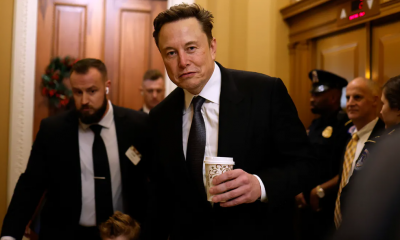Doge today
Trump and Musk’s Federal Overhaul Faces Major Legal Challenge Over Constitutionality

A broad coalition of labor unions, local governments, and nonprofit organizations has filed a major legal challenge to President Donald Trump’s sweeping overhaul of the federal government. The lawsuit, filed late Monday in a San Francisco federal court, alleges that Trump’s executive actions — orchestrated through the controversial Department of Government Efficiency (DOGE), led by Elon Musk — are unconstitutional because Congress never authorized them.
The plaintiffs, which include the cities of Chicago and Baltimore as well as Harris County, Texas, argue that President Trump and DOGE have launched a dramatic downsizing of the federal workforce without proper legal authority. The complaint specifically targets Trump’s February 11 executive order that launched the “Workforce Optimization Initiative” — an effort that has already resulted in thousands of federal job cuts, agency restructurings, and program shutdowns.
“Three months into this Administration, there can be no real doubt that impacted federal agencies are acting according to the direction being given by President Trump through DOGE, OMB, and OPM,” the lawsuit states, referring also to the Office of Management and Budget and the Office of Personnel Management.
The coalition argues that DOGE, unlike traditional agencies, lacks statutory authority — meaning it has no legal standing to issue directives on staffing cuts or budget reductions. “DOGE has no authority at all to dictate to the agencies created and governed by Congress any level of staffing cut or spending reduction,” the plaintiffs state.
This case follows a previous legal battle involving mass firings of probationary federal employees, in which the same court ruled that OPM had acted illegally. Although the Supreme Court later vacated that ruling, the core constitutional questions remain unsettled.
In the new complaint, the plaintiffs argue that the federal government, since the founding of the United States, has been structured by Congress — not the president. By initiating massive agency reorganizations and closures without Congressional input, the Trump administration is accused of violating the separation of powers enshrined in the Constitution.
While the White House claims these moves are part of a voter-backed mandate to eliminate waste and inefficiency, critics warn of irreparable harm to public services and legal norms. The plaintiffs are asking the court to overturn Trump’s executive order and halt all agency “reduction in force” plans immediately.
So far, Republican leaders in Congress have remained silent, despite their constitutional role in determining the structure and function of federal agencies. As DOGE representatives continue to install themselves across government departments, the legal battle over Trump and Musk’s vision for a leaner government is only just beginning.
With constitutional questions at the center of this challenge, the outcome of this lawsuit could reshape the limits of executive power — and the future of how the U.S. government operates.
{Source: WKU}
Follow Joburg ETC on Facebook, Twitter , TikTok and Instagram
For more News in Johannesburg, visit joburgetc.com


























